#yaghan
Text
MAMIHLAPINATAPAI
[noun]
(sometimes spelled mamihlapinatapei) derived from the Yaghan language of Tierra del Fuego, listed in The Guinness Book of World Records as the “most succinct word”, and is considered one of the hardest words to translate.
It refers to “a look shared by two people, each wishing that the other will offer something that they both desire but are unwilling to suggest or offer themselves.”
A slightly different interpretation of the meaning also exists: “It is that look across the table when two people are sharing an unspoken but private moment.
When each knows the other understands and is in agreement with what is being expressed.
An expressive and meaningful silence.”
5 notes
·
View notes
Text
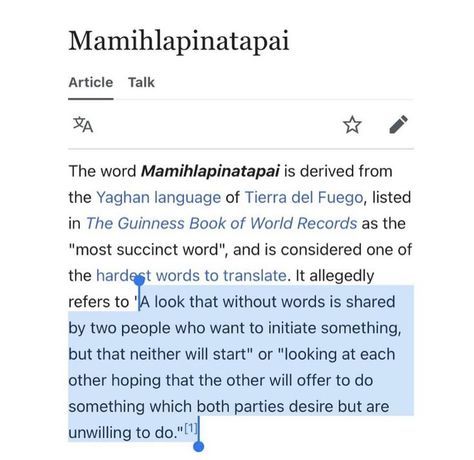
from: https://en.wikipedia.org/wiki/Mamihlapinatapai
#mamihlapinatapai#love#tierra del fuego#yaghan#untranslatable words#language#communication#humanity#wikipedia#wiki
4 notes
·
View notes
Text
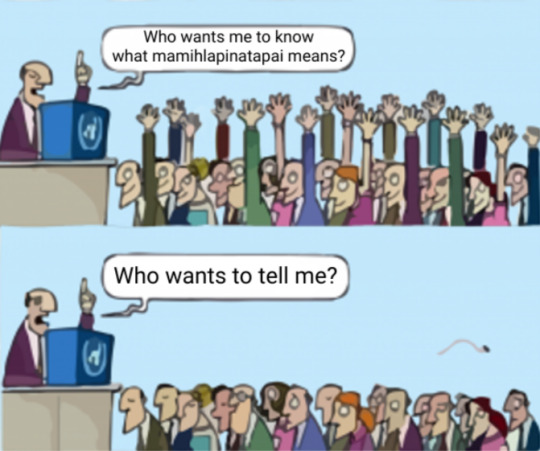
#language#linguist humor#translated literature#self reference#mamihlapinatapai#yaghan#tierra del fuego
0 notes
Text
Lycalopex Culpaeus
South American foxes, also know as zorros, aren’t really foxes- they are more closely related to wolves, coyotes and jackals. The culpeo is the largest South American fox species, weighing from 12 to 30 pounds (5-13.5 kg).
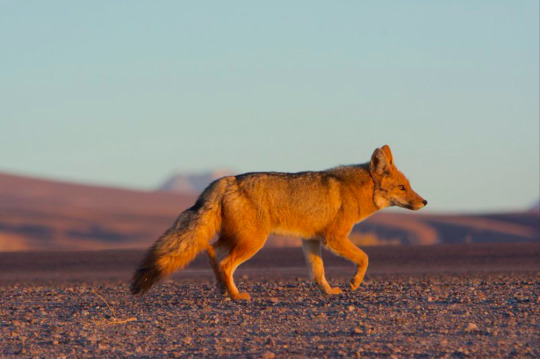
Culpeos are essentially the coyotes of South America. They are highly adaptable animals and live in a variety of habitats in western South America. These habitats include mountains, coastal beaches, plains, and deserts. Their distribution extends all the way from Ecuador and Peru to southern Patagonia.
Since most of their prey is active at night the culpeo is primarily nocturnal, although some populations are more active during the day (diurnal) or at dusk and dawn (crepuscular). Their diet consists mostly of rodents and rabbits but they also prey on lizards, birds, plants, carrion, and occasionally sheep, which makes them a target for shepherds.


Culpeos are very solitary animals, only seen in pairs during the breeding season and when they have pups. Even though they are very solitary and attack sheep, people attempted to domesticate them. This attempt didn’t go very well and the result, called a Fuegian dog or Yaghan dog, was only around until the early 1900′s. The dogs were used for hunting otters but they were apparently not loyal to their owners and frequently attacked livestock.
I rate the culpeo 14/10. They may have been bad dogs but they are very good foxes
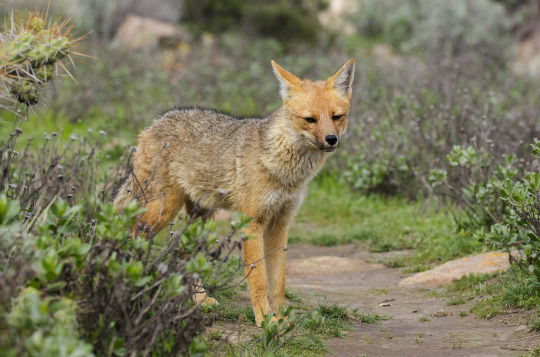

Photo Credits:
(1) Torsten Klein (2) Bernardo Segura (3) doglime.com (4) Thomas Fuhrmann (5) Joel Sartore
#culpeo#fox#andean fox#foxes#culpeos#south america#canine#canines#dog#dogs#animal#animals#nature#wildlife#zoology#biology#science
1K notes
·
View notes
Text
Yandere prompt unique words
TW: yandere themes, MATURE AUDIENCE ONLY/MINORS DNI
Reblogs are welcome. Do not copy without crediting me.
I do not condone any 'yandere' behaviour in real life.

- Hiraeth (Welsh: longing for a home to which you cannot return): "I've only begun to know what home means when I met you. Please, don't take it away from me again."
- In perpetuum et unum diem (Latin: forever and a day, can be used to declare everlasting love): "Forever and a day, until the stars bleed from the sky. That's how long I'll love you."
- Kapsoura (Greek: καψούρα, a burning desire for someone): "Every time I see you I burn up, darling. Won't you ease the pain?"
- Koi no yokan (Japanese: 恋の予感, the premonition of love): "You felt it, too, right? You must have!"
- Litost (Czech: a state of agony and torment created by the sudden sight of one's own misery): "I didn't mean to... don't look at me like that!"
- Mamihlapinatapai (Yaghan: The wordless, meaningful look shared by two people who both desire to initiate something, but are both reluctant to do so): "You didn't come to me, so I had to react first."
- Mono no aware (Japanese: 物の哀れ, the feeling of bittersweet joy that comes from a moment you know will not last): "Just indulge me this once, my love. Just for a moment."
- Retrouvaille (French: meeting someone again after being apart for a long time): "I have looked for you in every corner of this world, you can't leave now!"
- Saudade (Portuguese: longing for something or someone that cannot come back): "I know it hurts, my dear. But we can't go back to how it was."
- Schadenfreude (German: feeling happiness about someone's misfortune): "You can't blame me for being happy. They had it coming, you know?"
- Spleen (French: baudelairean term, deep dissatisfaction or melancholy): "I'll drag you with me to the darkest pits of hell if I have to."
- Yuán fèn (Chinese: 缘分, a pre-destined relationship): "This was always meant to be the outcome. You, here, in my arms — where you belong."
31 notes
·
View notes
Text
Lycalopex culpaeus
South American foxes, also know as zorros, aren’t really foxes- they are more closely related to wolves, coyotes and jackals. The culpeo is the largest South American fox species, weighing from 12 to 30 pounds (5-13.5 kg).
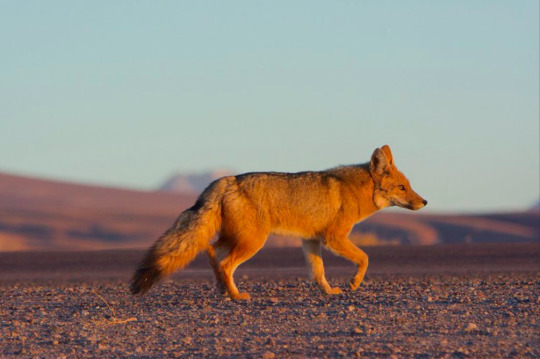
Culpeos are essentially the coyotes of South America. They are highly adaptable animals and live in a variety of habitats in western South America. These habitats include mountains, coastal beaches, plains, and deserts. Their distribution extends all the way from Ecuador and Peru to southern Patagonia.
Since most of their prey is active at night the culpeo is primarily nocturnal, although some populations are more active during the day (diurnal) or at dusk and dawn (crepuscular). Their diet consists mostly of rodents and rabbits but they also prey on lizards, birds, plants, carrion, and occasionally sheep, which makes them a target for shepherds.
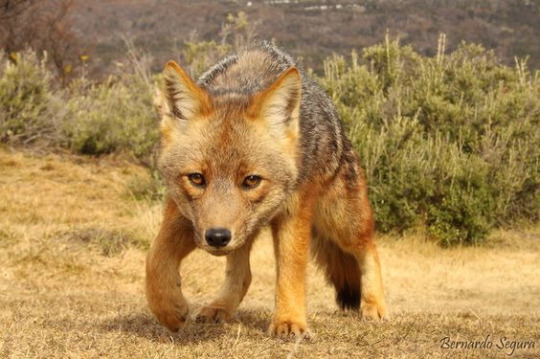
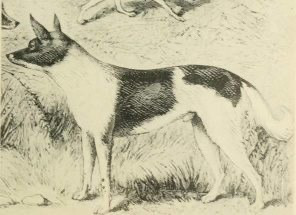
Culpeos are very solitary animals, only seen in pairs during the breeding season and when they have pups. Even though they are very solitary and attack sheep, people attempted to domesticate them. This attempt didn’t go very well and the result, called a Fuegian dog or Yaghan dog, was only around until the early 1900′s. The dogs were used for hunting otters but they were apparently not loyal to their owners and frequently attacked livestock.
I rate the culpeo 14/10. They may have been bad dogs but they are very good foxes

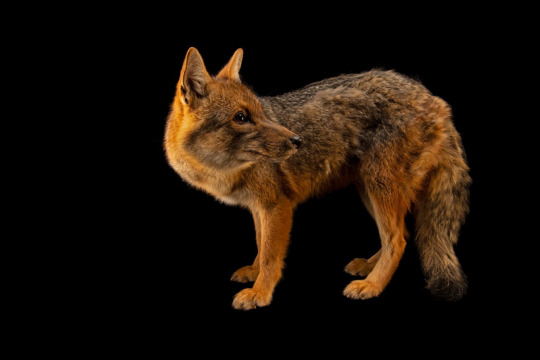
Photo credits:
(1) Torsten Klein (2) Bernardo Segura (3) doglime.com (4) Thomas Fuhrmann (5) Joel Sartore
#culpeo#culpeo fox#fox#animals#biology#nature#science#wildlife#zoology#animal#dog#dogs#wild#South American fox#zorro
277 notes
·
View notes
Text
The word mamihlapinatapai is derived from the Yaghan language of Tierra del Fuego, listed in The Guinness Book of World Records as the "most succinct word", and is considered one of the hardest words to translate.
It has been translated as "a look that without words is shared by two people who want to initiate something, but that neither will start" or "looking at each other hoping that the other will offer to do something which both parties desire but are unwilling to do".
Wikipedia
5 notes
·
View notes
Note
Obviously you don't have to answer if you don't want to, but was just wondering what you think of Lewis' vacation to Antarctica. I've seen a lot of opinions on it and it's made me quite annoyed
hmm, well. so: the bit of Antarctica that he's in is the southern tip of Argentina, not the island that we tend to call the Antarctic. which does somewhat make a difference because that's a place (not many but some) people live not a research station in a desert. there is a lot of tourism to this part of the Antarctic - cruise ships take people there to see it, you can organise trips there as a normal person. so he's not entirely flexing a privilege to do something only he could.
which doesn't, of course, make the environmental and social impacts of tourism in vulnerable regions any better.
for someone who genuinely cares a lot about animals and the environment, Lewis is sometimes really a dork about thinking things through. people shouldn't be that close to penguins and seals and probably a good idea to leave the scant amount of sheet ice alone and not treat it as a ski slope. Tierra del Fuego is often thought about as the end of the world; unfortunately, the climate is actually looking like that.
do I think Lewis is doing it with any malice? no, of course not. and maybe he has been educating himself while he's there. but there are far less environmentally impactful places to do that from; watch Frozen Planet, y'know.
the other factor is that Tierra del Fuego is home to indigenous people who are unlikely to profit from tourism and whose home is affected by it. Mapuche people, the largest indigenous group in Argentina, live there and so do Yaghans and other Fuegans. tourism affects indigenous people's rights to use their land, as well as animal populations and creating pollution and potential energy conflict.
so: there are lots of reasons why holidaying in Antarctica is not great and conflicts with a lot of what Lewis believes. does that make him hypocritical? yes but I suspect in an unaware way; he's sometimes extremely oblivious because he has spent his entire adult life in a very small bubble, which his efforts to educate himself beyond sometimes disguise how much those are things he had to do deliberately, not information that was fed to or came naturally to him.
I am not delighted he's done it. I don't think he intended to cause harm and would be worried by the idea he could have, if it was discussed with him. for someone who advocates conscious living he can be a bit live, laugh, love when it's something he wants to do and to be honest, there's a lot of childish delight at the idea of seeing the Antarctic that would probably enchant a lot of us given the opportunity. there are 200,000 people who visit Ushuaia every year, so there's clearly a market for it.
is it a reason to remember that Lewis, like everyone, isn't some sort of pure figure who can do no wrong? yeah. awhile ago I answered an ask that was something along the lines of 'how can you think Lewis is problematic' and it's like: because he's a Formula 1 driver. because he is a person who is honestly trying to do his best on a lot of things but who is still going to make mistakes. his ultimate priority remains driving a car faster than anyone else on 23 Sundays a year, not educating himself or other people in a mature and informed way and if you expect anything else from him you will be inevitably disappointed.
so: it's ok to be annoyed at him about this and still like or support him. it's ok to think he's the best F1 driver at advocating for things and also just a fucking idiot rich boy with zero thoughts in his brain sometimes. what Lewis has achieved and overcome isn't lessened or negated by the fact he did it while also being Just Some Guy Who Makes Bad Choices Because He Was Having Fun or whatever. blorbos are multifaceted and it's what makes them so incredibly tempting to like, put in a box and tell them no.
37 notes
·
View notes
Note
Tbh if there's going to be a domestic fox project specifically, I think I'd be a bit more trusting of like, a project to "resurrect" Yaghan dogs by trying to domesticate culpeos again. Culpeos aren't TRUE foxes but it's still pretty interesting that there actually were domesticated dogs descended from foxes that existed once, only to be forced into extinction. Of course, I think such a project should be lead by actual Yaghan people, similar to the way there are Hawaiian breeders trying to restore poi dogs.
That would be really cool honestly.
38 notes
·
View notes
Text
Fuck, I need to rant about BTIW again, this time specifically how Medieval Thoth would be perfect for Crusader Kings. There's so much potential right there that I need to start learning how to mod total conversions (this will also be an explanation on Thoth pre colonization I guess)
First, I'm using the 1522 map of Thoth for this idea, I do not care that they'd very quickly meet the Portuguese and Spanish, I don't have any maps of Thoth before than.
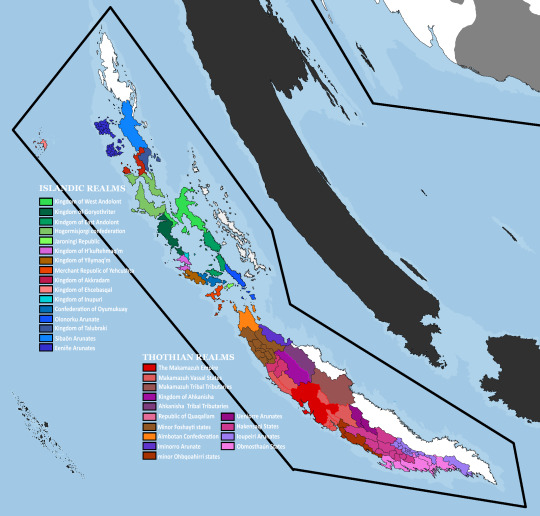
Now, before I continue I just want to explain the human populations we're working with. There are three distict groups of humans we're working with.
The Bae Noongeor, descended from the Yaghan people of South America, who are the only ones who naturally traveled to Thoth. They inhabited the many islands to the west of Thoth, however, by the time Western Thoth proper was being settled the Foshayti showed up.
The Foshayti are Carthaginian sailors blown by a freak storm through the Sentinal's Gate and straight onto Continental Thoth, founding the Makamazuh Empire, the largest Empire on Thoth, and the closest equivalent I can think of is China in that's is a large, bureaucratic empire, although they have a much more religious angle to their Empire. They are very dedicated to spreading the temples of Baal Braħaas all over Thoth.
Our final inhabitant to Thoth arrived around in the 11th century CE, that being the Nogri People, descendent from recently converted Vikings who went to settle Vinland, they arrived in Thoth via vile vortex(a method where one is transported through space by a wormhole, ending up in another part of the world(the Bermuda Triangle is one of these)). They basically took over most of the middle islands during the first Andolont Empire although eventually collapsed into multiple smaller kingdoms. And their recent paganism has translated into a heavily syncretic version of Christianity.
Now can you all se why it'd make such a banger Crusader Kings mod? You have Vikings following a heavily pagan version of Christianity, a China like empire of Carthaginians worshipping Baal(who might I add, has a tradition of child sacrifice), and a bunch of Yaghan to fill everything else with unique varieties of worship 7500 years removed from their relatives back on Earth. The ideas just keep swirling around in my head.
That's not even to mention the alien landscape of Thoth. Having once been apart of Antarctica it broke off during the last Green Period, meaning it's home to a bunch of Marsupials and other Fauna from the period, along with things like the Isle of Ib(where trees slowly move from one end of the island to the other) or even just the high volcanism Thoth has due to it's accelerate tectonic plates (did I mention Thoth circles the world every 1500-2000 years?)
I should really learn how to mod CK3 because I'd love to play this mod. it'd be the perfect way to get someone into BTIW because this is just a fraction of the world. The Avalons with Holy Hy-Brasil/the Kingdom of Avalon, and the Bowubo(neanderthals), Shangri-la with the bountiful gardens of the vogolvolk, and Aten with the the various Duendes, would all make settings that are just as interesting as Thoth in their own right, although I feel like Thoth's collection of cultures is perfect to pull someone into BTIW's world.
#beyond the ice wall#btiw#worldbuilding#crusader kings 3#Thoth: the nomad continent#the nomad continent#if someone wants to mods this please let me know and I can get you in contact with the BTIW team#please it'd be so cool
2 notes
·
View notes
Text
words without english translations
The word mamihlapinatapai is derived from the Yaghan language of Tierra del Fuego, listed in The Guinness Book of World Records as the "most succinct word", and is considered one of the hardest words to translate. It has been translated as "a look that without words is shared by two people who want to initiate something, but that neither will start" or "looking at each other hoping that the other will offer to do something which both parties desire but are unwilling to do".
Mono no aware (物の哀れ),[a] literally "the pathos of things", and also translated as "an empathy toward things", or "a sensitivity to ephemera", is a Japanese idiom for the awareness of impermanence (無常, mujō), or transience of things, and both a transient gentle sadness (or wistfulness) at their passing as well as a longer, deeper gentle sadness about this state being the reality of life.
Weltschmerz (German: [ˈvɛltʃmɛɐ̯ts]; literally "world-pain" or "world-weariness") is a literary concept describing the feeling experienced by an individual who believes that reality can never satisfy the expectations of the mind, resulting in "a mood of weariness or sadness about life arising from the acute awareness of evil and suffering".
Tsundoku (Japanese: 積ん読) refers to the phenomenon of acquiring reading materials but letting them pile up in one's home without reading them.[1][2][3][4] It is also used to refer to books ready for reading later when they are on a bookshelf.
Sehnsucht (German pronunciation: [ˈzeːnˌzʊxt]) is a German noun translated as "longing", "desire", "yearning", or "craving".[1] Some psychologists use the word to represent thoughts and feelings about all facets of life that are unfinished or imperfect, paired with a yearning for ideal alternative experiences.
#words without translation#so what if there are a million of these#i went down a rabbit hole#thanks wikipedia!#this was just a short ass search i know i've seen a million more of these here on tumblr#mamihlapinatapai#Sehnsucht#Tsundoku#Weltschmerz#Mono no aware
18 notes
·
View notes
Text

Hiccunzel 2022 Day 1: Mamihlapinatapai
Mamihlapinatapai - (Yaghan) the wordless, meaningful look shared by two people who both want to initiate something, but are both reluctant to; an unspoken look between two people.
Read on AO3
Word Count: 2,631

1.
Technically, they knew each other through friends of friends. But it was one thing to hear of someone and another to meet him in the corner cupboard under the kitchen counter of her friend’s rented house.
Rapunzel stared at him. He stared at her.
Slowly, she raised her bag of knitting. “…I was making Jack a present…”
“…And you didn’t want him to find it too soon. Got it.” He nodded, like it was a perfectly reasonable explanation. He held up his bowl of cereal, and added, “Because otherwise Jack will steal it, you see.”
Rapunzel peered at the bowl. “Even if it’s raisin bran?”
“Especially if it’s raisin bran. He’ll do it out of spite.” He stuck a hand out in what little space there was for it. “I’m Hiccup, by the way.”
Rapunzel carefully shook it. “I know.”
“Well, that doesn’t sound ominous at all.”
She grinned at him. Then unrolled her bundle over her lap, setting about untangling her strings from her crocheted flowers. “...My name’s Rapunzel.”
“I know.” As if that didn’t sound ominous either.
Somewhere in the house , both of their friends went on with their lives. But they stayed in the cupboard, him eating his cereal and her knitting her present, and she thought, You’re just like I’d imagined you’d be.
2.
A few weeks later and Christmas was around the corner, which meant that Hiccup was on the market for finding the weirdest club he could guilt trip Jack into joining with him. Christmas had always been an extra soft spot for Jack. Hiccup was not above milking the fact for entertainment purposes despite not celebrating the holiday himself.
But first he needed to fetch the noob from theater rehearsals. He refused to go anywhere near backstage; past experience had taught him and taught him well. So he remained sprawled in one of the second row seats, aimlessly scrolling through his phone and bored out of his skull.
Out of the corner of his eye, a bright patch of green and the sound of jingling came into focus. Hiccup looked up and found a familiar figure bobbing into sight.
“...Rapunzel?”
She turned her head. “Hm? Oh, Hiccup! Hello! What are you doing here?”
“What are you wearing?” Hiccup cringed, then backtracked. “Wait no that sounded wrong, sorry. Uh. Let me rephrase that: what part are you supposed to be?”
“To be?”
“Playing. What part are you playing with–you know.” He gestured in her general direction.
“Oh, this?” She held out her skirt, poofy and sparkly like a Fairy Godmother Tinkerbell remix. “This is just my–wait, hang on, do you think I’m–no.” She laughed. “Nonono, I’m not playing any role in the play. Or at least not for this one. I’m just wearing this for fun.”
“Really?”
“Yeah, because I like it.” In one hand, she carried a plate of cookies. She held one out. “Would you like a cookie?”
They were those pale, chunky, vanilla ones, the top coated in a glittery layer of red sugar.
Hiccup might not have normally been one for sweet foods, but he wasn’t about to pass up the chance to eat the first thing he’d had since lunch. “…Yeah, I would. Thanks.”
She gave him the cookie and wandered away, humming under her breath. On stage, a group of background singers had just finished their warmups and started on one of their pieces, and her gait matched the tempo they began with.
Hiccup watched her go, chewing on a bite of cookie, and thought, This is nice.
3.
Their friends, predictably, kept being friends, and this, predictably, brought them closer and closer together. Like two asteroids drawn into the same asteroid belt and parallel orbits.
Either Jack would pull Rapunzel into doing something with him, or Merida would want to compare class notes with Hiccup, or Jack and Merida were working on one of their potentially questionable projects together, or something else to do with the other people they knew or who knew them.
There were certain, small moments that would happen. Perhaps Hiccup would be sharing a story, complete with goofy voice acting and hand flailing. Or Rapunzel would serenade one of their friends into an impromptu dance in the living room. Maybe one of them would laugh so hard at a joke they’d fall over holding their sides, or nearly knock over a cup but fumble and catch it just in time.
But they’d notice those moments. They’d notice the other noticing. And then look away, somewhat sheepish, somewhat bemused.
It…was not unpleasant.
4.
Game night included a round of drinks, as meet-ups amongst college friends sometimes did.
It was late in the evening–or obscenely early in the morning–when they decided to finally wind it down. Hiccup remained on the ratty couch his friends had left him on, with one very drunk Rapunzel blinking in and out of sleep against him.
He was tired enough that sinking into the couch and becoming one with it didn’t seem like such a bad idea. It wasn’t like he could move, anyways, not with Rapunzel wrapped around his arm the way she was, so he’d mostly ignored her. Every now and then, she’d turn her face and sniff his shoulder, and he ignored that as well.
“Hiccup,” she said, “Hiccup, you’re so nice.”
“Thanks, Zell, though if you ask me I’d say I’m rather crabby, mostly.”
“No really, you’re just so, so nice. So so so…so good, like…”
“That’s a lot of ‘so’s in there.”
“...I want to…I wannuh say a word but I can’t rememem…rememver it. Rememverber.”
“New month just dropped, amazing, congrats. When you get that in tomorrow’s paper, make sure you mention me, okay?”
Rapunzel let out a few drunken snorts. Her eyes, glazed and shiny, landed on his face. They stayed there for a long, slow blink.
“…I want to kiss you.”
That’s the alcohol talking, would’ve been his first response. Then he remembered that this was Rapunzel. Of course she was one of those happy, kissy drunks. So Hiccup turned to her, raising his eyebrows to his hairline, taking on an air of immense surprise.
“But do you have enough money to pay the tax?”
“…What tax?”
“The kissing tax. You’re supposed to pay it. Come on, Zellie, don’t you have any money?”
“…But…but…” Rapunzel teared up, “…but I’m broke…and, and Meriza has my purse.”
“Then you can’t pay your taxes, Zell, I’m sorry to tell you. And now you can’t pay your rent either, or go buy food or water–”
“Noooo–”
“–or get more paint or visit the park or go to Build-A-Bear–”
“No, no, no, Hiccup, please–”
“It’s really very sad but this is your life now, you need to deal.”
From out in the hallway there echoed heavy, clunking footsteps. A second later, Merida strode through. “You two doing okay? We’re just about ready to head ou…what is going on?”
They turned to her, Rapunzel with tears trailing down her face, while Hiccup held either side of her head.
Rapunzel gave a big, watery sniffle. “I just…I wanted to kiss him but I’m broke.”
Hiccup nodded solemnly. “Someone had to tell her.”
Merida put a hand on her hip and shook her head at them. “You know, I think I see what’s going on here. This is exactly like what’s been happening lately. Rapunzel keeps trying to be sappy and nice with you, and you? You keep poking her about it.”
“No, you see, what I actually did was stop sexual harrassment through the use of psychological warfare.”
“You are doing this for self-gratification specifically and you know it. Is any of this even necessary?”
“Well, Merida, if she doesn’t want me to do that then why does she keep making it so easy, huh? Why do you make it so easy, huh? Why are you always being such a big target, so easy to hit? You shouldn’t be doing that if you didn’t want to live like this but you is doing it because you is a big, big dummyhead, yesh you is, and ish sho sad. Ish really, really sad.” The hold on her head had turned into him pinching her cheeks, and he gently yanked her forward and back as he continued to talk over her and the sad, squeaking noises she made.
“…Okay, that’s it. I’m stopping this. Zell-bell, come here. Time to go home now.” Merida made her way over to them. “This goblin doesn’t deserve kisses anyways, he doesn’t bathe and he’s covered in dorito dust.”
“Excuse–”
Merida leaned around him and scooped Rapunzel up, so that Rapunzel’s legs wrapped her waist and she draped over her front. “Up-sa daisy, there we go. Comfy? Good.” Giving her a little bounce for adjustment, Merida started back the way she’d come. “And goodnight to you, goblin man, try not to die in a gutter,” she called over her shoulder.
“You try not to kick a capitalist in the face first, how ‘bout that.”
Merida didn’t bother with an answer. But if her hands hadn’t been occupied he knew in his heart that she would’ve flipped him off.
Around the fluff of her hair, Rapunzel’s sullen, pouting face remained just barely visible. She sniffled again. “…But he smells nice…” she mumbled.
It was then, as he watched her leave, her face red and blotchy with tears, that Hiccup wondered for what felt like the first time if perhaps he did want a kiss from her.
5.
It wasn’t the first time Rapunzel had stayed over by herself. Nor was it the first time Hiccup walked her home.
However, as per a newly recurring habit, they were once again having a “friendly” discussion.
"–Then just say what you mean, then."
"I am," she argued.
"No, you're not. Instead of being direct you keep referencing everything through what you felt when you were watching–"
"For the last time, I'm not talking about that show with you–"
"Excuse you. It is art."
"It is scary. And you are using that to make dark jokes about your mortality and it's giving me anxiety!"
He didn’t look at all concerned about her plight. In fact, he looked on the edge of saying something he just knew she wouldn’t like.
"…Okay, but like who's to say there can't be light jokes about death–"
"Will you stop?" she shrieked, half laughing, half incredulous. She swatted at him and missed by a foot, stumbling as she did. Yet he still caught her elbow right before she walked into a lamppost and steered them away.
She saw the look on his face a second too late. "Don't say it."
"…You know, this reminds me of when your favorite character–"
"Gah!" She swatted him again, and this time landed. It did nothing to wipe the smug grin off, of him successfully reminding her of her "favorite" character–the one who kept wandering into the danger and kept getting killed. He liked testing her like that.
He’d gotten into the habit of doing it a lot, as of late. Whenever there was an excuse for them to talk, he'd somehow draw her into bickering over the most silly, annoying little things and next thing she knew they'd be going at it for hours. She knew why he was doing it. He wanted to get a raise out of her, whether to make her laugh, or to entertain himself, or both. And all for the sake of attention.
Or at least, she was half sure it was. Somewhat sure. Sometimes, it felt like he was picking at her brains, trying to see what thoughts it had and what she was made of. Like she was a strange, new specimen he’d held a stick out to to poke. She didn’t know whether to be flattered or not.
But she did know that she couldn’t just let him get away with being a smug smirky pants who always got her huffy. If he wanted to bring out the competitive side of her, he’d better be prepared for her to turn it on him.
It was exactly why she’d befriended his cat. Together, the two made a partnership of cuddles and revenge. Even Jack, soon as he realized, thought it was hilarious and egged them on.
Rapunzel nodded to herself. The next time she went over, it would be revenge time!
She'd just started brainstorming when Hiccup tapped her shoulder. He nodded to a brightly lit store in the distance.
"Isn't that the seven eleven you were telling me about? The one you visited last week?"
Rapunzel squinted at it, then brightened. "Yeah, when it was raining, I think."
"When it'd been about to rain, you’d said. And you'd bought a pudding cup."
"Oh, right!" She clapped her hands together. "I'd forgotten about that." And it'd been good pudding, too.
He gave the store a long, considering look. "…Do you…want to finish telling me that story? And we can go get more pudding, if you like?" he asked, rubbing the back of his neck.
And there was another thing. He didn’t just prod her. He also listened to her. Sometimes she’d sprawl out on his couch and ramble on and on about her thoughts, and he didn’t interrupt.
And next thing she knew, he’d surprise her with remembering those little things. When she’d told him the story, she specifically remembered that he’d been playing a video game. She hadn’t even realized he’d been paying such close attention.
He didn’t tell her he wanted to spend time with her, but he always found a way to make her stay. He didn’t tell her he cared, but he’d show proof of how carefully he listened.
He didn’t say he wanted to care for her. But there he stood at the crosswalk, across from a store he suggested going to on a walk he offered to accompany her on. She skipped over and wrapped her arm around his.
Maybe, just maybe, she thought, that there were more and more reasons for her to want him to keep caring.
+1.
Hiccup sat on the couch. Rapunzel sat in the plush chair. Both looked anywhere but at each other.
It wasn't even that they happened to be alone. They'd been alone plenty of times. But this felt different.
Rapunzel kept her chin on her knees. She wiggled her toes, clad in fuzzy purple toe socks. From the edge of her sight, she sensed Hiccup's head thunk on the back of the couch, and had to smother a nervous giggle.
"…So…" she started. He let out a deep sigh.
"…So."
"…Are you thinking what I'm thinking?" She asked.
He finally looked at her. She held his gaze, though she was very sure she was blushing. He raised an eyebrow.
"Only if you're thinking what I'm thinking."
"Well…I think…"
"Perhaps we…"
"Probably–"
"Really–"
"Like each other."
"…A lot." She studied him, then nodded. "Yeah. A lot."
He scrubbed a hand over his face. "Does this mean we have to do something about it?"
"Well," she gave in and giggled. He gave her an unimpressed look, and she giggled even more. She couldn’t help it. "Well, we don't have to do anything. But like, I think it's interesting, don't you?"
"It's new."
"I want to…I want to hold hands with you."
"We already hold hands without this."
"But it's not, it's not just that, like–you know what I mean, right? I want to hold your hand, and things like that, and…and I also want to talk about this."
"…Okay." He scooted closer to her. "Okay. Let's talk."
They spent the rest of the morning talking. And by the end of it they did hold hands.
#hiccunzel#hiccup x rapunzel#rotbtd#rotbtfd#rise of the brave tangled dragons#rise of the brave tangled frozen dragons#rapunzel#tts rapunzel#rta rapunzel#tangled the series#rapunzel's tangled adventure#disney#hiccup httyd#hiccup how to train your dragon#hiccup horrendous haddock lll#httyd#how to train your dragon#rta#tts#dreamworks#shipping#fandom event#fanfiction#the big four#tbf
20 notes
·
View notes
Photo

Your OFMD word of the day is... mamihlapinatapai (n.) - the look shared by two people, each wishing that the other would initiate something that they both want. From the Yaghan language of Tierra del Fuego
9 notes
·
View notes
Text
Last day
But since our flight wasn’t until midnight, we had plenty of time to roam the city.

We started with going to breakfast in the beautiful garden of this very cool bookstore-cafe combo. We both ordered a ‘sandwich caliente’ as the only thing that wasn’t just pastries, which ended up being the ferry Yaghan special, i.e. a ham and cheese sandwich. This one at least was a grilled ham and cheese sandwich. We got a plate with four neat little triangles of sandwich, thinking that was for both of us, then later received ANOTHER four triangles. Inspection of which edges of the bread had crust revealed that this must have been the most enormous slices of bread possible. Anyway, silliness aside it was all very good.
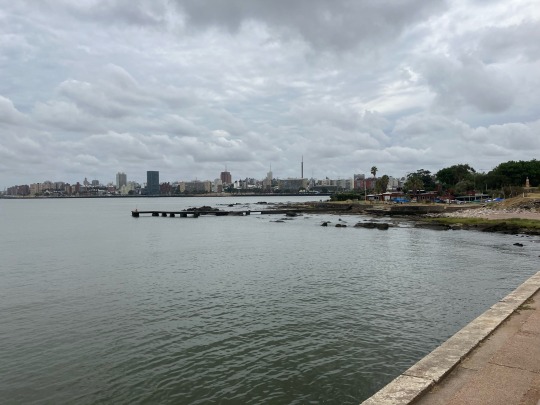
Since the morning was nice and overcast, we went back out to the Rambla along the waterfront. Between the beaches there are a lot of rocky points, and a lot of fishing piers and fishing clubs. And a lot of shorebirds!
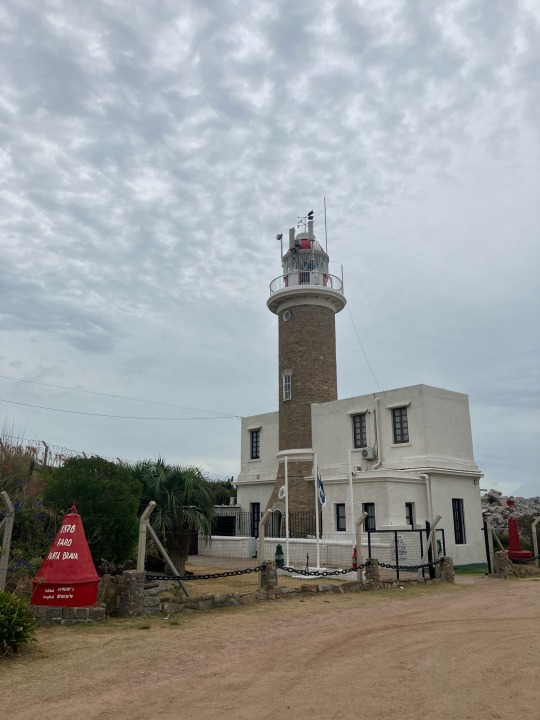
We took a detour out to the point in search of a lighthouse marked on the map. After passing a navy base, a sewage treatment plant, a bunch of people camping in vans, and (naturally) a parrilla, we found the lighthouse. Nice to look at and there were some tiny green hummingbirds in the bushes, all trying to run each other out of their territory and making a lot of noise about it.
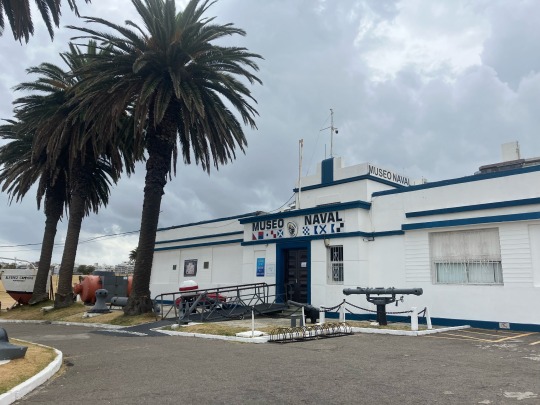
Down toward the end of the next beach, we ran into the maritime museum! They were closed but there was a cute little playground outside made of the bridge of a ship.
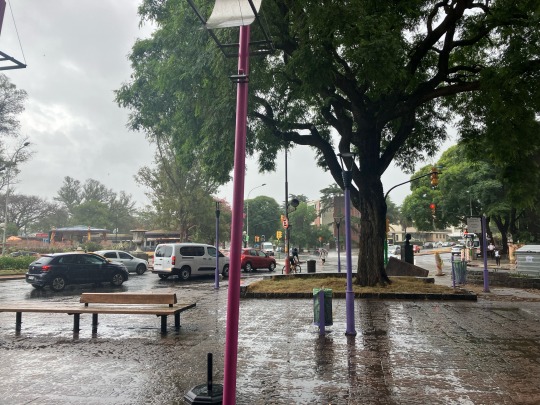
We stopped in to get our 4pm heladitos, just in time to dodge a torrential downpour outside. We waited out the worst, then scuttled across the street to the national art museum.

There was a permanent exhibit about Uruguayan artists, the most interesting of which was Joaquín Torres García, a constructivist painter from the early 20th century. There’s a whole museum of his works downtown, but plenty here too.

There was also a temporary exhibit of paintings by Giacoya, most of which looked kind of the same, but I liked these bicyclists.
Our last endeavor was getting a chivito, a classic Uruguayan sandwich (or so we were told). We ended up with what I think are the sandwich contents on a pile of fries instead: beef, bacon, ham, cheese, and fried egg. Some olives for garnish too. It was pretty good but I’m finding I’m ready to eat things that aren’t meat sandwiches…
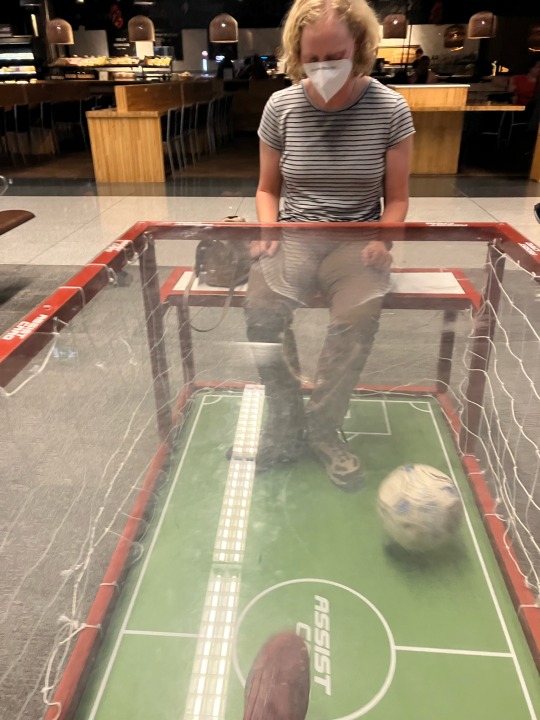
Anyway here’s our late night entertainment in the airport: a little table you can play soccer under!
Well, that’s that on that. We’re now in Miami having a very unfortunate time on the way home, but we’ll get there eventually. It’s been a great trip!
2 notes
·
View notes
Text
Pirahã and the Case for Linguistic Relativity
Pirahã is a topic that has fascinated me since I first heard about it years ago, when I was in high school. It’s a language spoken by a hunter-gatherer tribe in the Amazon that is the last surviving member of its linguistic family. This tribe was the subject of considerable interest when it was first contacted by linguists because it seemed to provide evidence for linguistic relativity—the hypothesis that language influences one’s perception of the world.
Throughout the eighties, the linguist Daniel Everett conducted research on the languages spoken in Amazon basin. He was surprised to find that one of those languages, Pirahã, had no numbers, only terms for “few” and “many.” When he tested speakers’ ability to match two quantities, he found that they performed less accurately when he hid one of those quantities from view and asked participants to recall it. Supposedly, the absence of number vocabulary compromised their ability to count as predicted by the linguistic relativity hypothesis.
Everett also made the startling claim that recursion, the ability to embed syntactic structures—at that time held to be an innate feature of language according to the theories of Noam Chomsky, was not in fact universal, using his research of Pirahã as evidence. The ensuing debate became the point of much controversy, with Chomsky calling Everett a “charlatan.” Pirahã is an outlier in several other respects as well: it also lacks color terms and according to some linguists is among the languages with the fewest phonemes (by some counts ten total), which allows speakers to communicate by whistling or humming.
If it is true that language influences how we think, then speakers of Pirahã are not unlike the fictional inhabitants of Tlön in the famous short story by Jorge Luis Borges, which imagines a language without nouns. Instead of saying “moon,” they say “to moonate,” and so on. In Borges’s story, this makes them idealists in the tradition of philosopher George Berkeley, who holds that the existence of the material world is an illusion.
However, many arguments for linguistic relativity tend to rest on misunderstandings about how language works—for example, by failing to distinguish between synthetic languages (which combine concepts into single words) and analytic ones (which separate them). A famous example is the claim that Inuit (or “Eskimo”) languages have fifty unique words for snow. This view is often attributed to Benjamin Whorf, who lends his name to the Sapir-Whorf hypothesis. The assumption is that having a larger vocabulary grants speakers access to a richer repertoire of concepts, when they have in fact only a few word roots for snow with many different suffixes, similar to compound words in English, because Inuit languages are synthetic. Likewise, that Pirahã might require more words than English to express the same concept should not preclude speakers from learning it.
The debate surrounding linguistic relativity recalls certain philosophical problems regarding the nature of translation. The philosopher Hilary Putnam devised a thought experiment: he postulated a language where the word gavagai could refer to either a rabbit or “undetached rabbit parts.” Both of these are plausible descriptions of the same object, which means that precise translation is impossible. This is relevant to the linguistic relativity hypothesis because proponents often assume that a concept only exists in a language if it can be expressed in a single word—but if any word can be decomposed into arbitrarily simpler concepts, then no word expresses a concept unique to that language.
For instance, the world mamihlapinatapai in the Yaghan language is listed in the Guinness Book of World Records as “the most succinct word.” It is often translated as “a look that without words is shared by two people who want to initiate something, but that neither will start.” Many claims have also been made of “untranslatable” words like saudade in Portuguese or poshlost in Russian. Is “snowflake” a combination of the concepts “snow” and “flake,” or is it a distinct, third concept? Resorting to what philosophers call “natural kinds,” the categories that exist out in the natural world, doesn't really resolve the issue, since it begs the question.
In Uncleftish Beholding by sci-fi author Poul Anderson, we see how the vocabulary for certain concepts might be derived in a language without native words for them. He attempts to explain atomic theory in “purist” English by avoiding French, Greek, and Latin loanwords.[1] This is no easy task, but it is possible. For example, he uses the word “waterstuff” for hydrogen (from the German wasserstoff) and “samestead” for “isotope.” This constraint yields rather inspired sentences: “elements are composed of particles called atoms” becomes “the firststuffs have their being as motes called unclefts.”[2]
While Anderson's essay is facetious, such purism is characteristic of linguistic revival projects around the world, and various scholars have attempted to institute similar proscriptions for other languages in earnest. In one striking example from 1969, Filipino linguist Gonsalo Del Rosario wrote Maugnaying Talasalitaang, a dictionary with proposed translations of numerous academic terms into Tagalog, which traditionally relied heavily on loanwords from Spanish and English.
Everett’s work remains contentious among linguists, and many scholars have rejected his claims. When it comes to Pirahã, I suspect the real explanation for the tribe’s innumeracy is cultural. Sustained isolation and a lack of agriculture would negate the need for counting, which is an acquired skill. If anything, Pirahã shows that culture determines language, rather than the other way around.
[1] In a similar vein, Randall Monroe, the creator of xkcd, wrote an encyclopedia using the thousand most common English words, underscoring the irony that some concepts become harder to understand.
[2] It goes without saying that modern English's dual inheritance is what gives the language its flavor: Borges, who spoke English fluently, noted how a sentence’s meaning shifts when one switches from the Germanic “ghost” to the Latinate “spirit.”
0 notes
Text
I was looking at a list of domestic animals on Wikipedia the other day and was shocked to learn of one called the Yaghan dog: not a breed of the same dogs we have, but domesticated entirely separately from the cuelpo - which is like halfway between a jackal and a fox - in the islands that form the very southern tip of South Anerica. It was exterminated in the 1880s as part of a genocide carried against the Seik'nam, one of the native peoples who kept then.
Rant under the fucjing cut
A detail that threw me to fits of rage is a line saying the Seik'nam people "had no concept of private property", and hunted the sheep colonists herded on Seik'nam hunting grounds. Like, I'm sorry but who didn't understand property?? You took their fucking land! "Oh those savages don't understand ownership, they keep killing the animals I put where they kill animals" are you stupid?? Are you fucking stupid? Do you are you do you have stupid fucking idiot disorder?? Like sir do you think there's gonna be a healthy guanaco population on your pasture for them to hunt, or do you expect them to just be like "le sigh. Well I guess we'll hunt somewhere we already use for another purpose, or perhaps hunt somewhere that's a fucking day's travel from our village" You fucking shitbird. God forfuckingbid the genocide be entirely pinned on the perpetrators, their hands were forced by those barbarians who were simply too stupid to stop hunting. I can feel my teeth growing sharper the longer I think about this, and my vision is growing clouded with red from a faint glow in my irises. My lips are turning thin and black, my sole is receding from my heels. I'm becoming a werecuelpo and any Chileans in my vicinity are about to be minced. Fucking hell.
0 notes